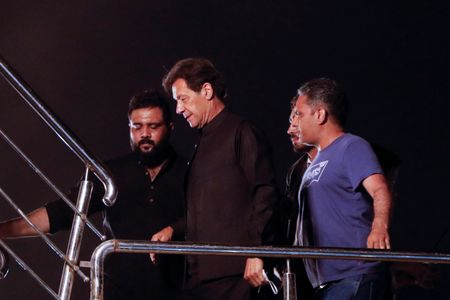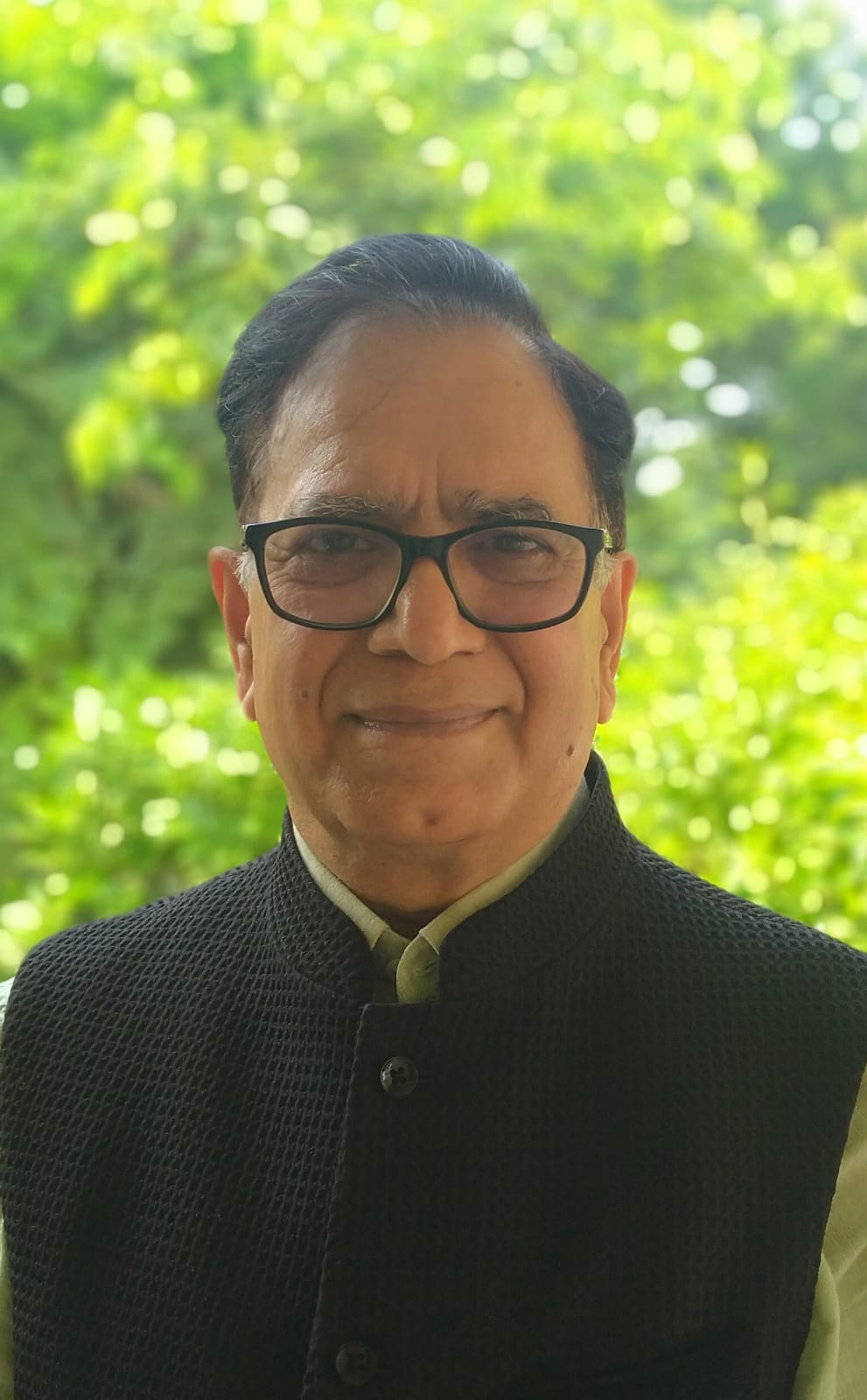
The Unceremonious Exit of the Captain

Cricketer-turned-politician Imran Khan had been finally summerly voted out of the post of the Chief Executive of Pakistan, a post he held for three and half years amid the worsening chaotic situation of the country and thus achieved the dubious distinction of being the first ever Prime Minister of Pakistan having been lost his majority mid-term.
Sworn in on 18th August 2018, Imran was deemed to have brought a breeze of fresh air in the decomposing body-politic of the Islamic Republic which had been ruled throughout its history either directly by the military or through proxy civilian governments. Imran Khan Niyazi, who was believed to have been ‘selected’ to head a minority government, initially made very tall promises. He promised to usher in a “Naya (new) Pakistan where “there will be milk and honey in abundance, jobs will be plenty, Pakistan will become a tourist heaven and Pakistani passport will be one of the most sought-after passports”.
He also promised to overhaul the judicial and police systems of the country and declared that he would “commit suicide than beg to the IMF for loan”. However, he approached IMF within months of his ascending to the throne. As regards his other promises, he has left Pakistan in tatters with a soaring foreign debt (mainly from China), depleting forex reserves, sky-rocketing inflation, plummeting currency and a higher unemployment- in nutshell a severely wounded economy.
His basic fault was that he wanted to run Pakistan as a cricket captain, whose dictate is supreme in the field, and not as a political leader who listens, not necessarily subscribing, to the point of view of others as well. He will go down in the annals of Pakistan’s history as the one who always blamed others for his deeds (or rather misdeeds).
For the economic crisis, he blamed all previous governments. On Kashmir issue, he blamed the super powers and the Muslim ummah (brotherhood) for deserting Pakistan and siding with India due to the latter’s sheer market size. He lamented that Pakistan had been made slave of the western powers who are dictating his country’s foreign policy and, in his zeal to prove his point, he even praised India’s foreign Policy as “independent”.
But he had more than three years to at least try to set it right which he didn’t. All his diatribes about foreign policy have started very recently. In fact, during the Trump administration, he never clamoured about USA’s attitude towards Pakistan but started making noises after he was snubbed by the new US regime.
The so-called cipher cable, on which the PTI based its allegations of a ‘conspiracy’ of the U.S.A. to throw boot Imran out, turned out to be a dumb squid as the Supreme Court of Pakistan found that in the minutes of the meeting of National Security Council convened to discuss the issue were not even signed by either the Foreign Minister or the National Defence Advisor. But Imran Khan tried to use this issue as a weapon against the opposition to divert public attention from the fast-blurring economic landscape.
In his last-ditch attempt to cling to power, the Prime Minister of Pakistan not only blatantly defied the established legislative procedure but also butchered the high democratic institutions by misusing the Speaker’s office and pressurising the President into signing the dissolution of Pak National Assembly in an undue haste.
This is evident from the fact that the entire drama on 9th April, from beginning of the National Assembly’s session for discussing the No-confidence motion to its dissolution by the President was enacted in just 28 minutes! His refusal to accept defeat in the National Assembly and gracefully bow out followed by his manoeuvres is a typical example of how far a leader with a dictatorial mind can go to keep his power. The Apex court, of Pakistan pleasantly stood its ground and emerged as the saviour of the constitution and democratic values of Pakistan.
Throughout these developments, the Pakistan Army surprisingly kept an inconspicuous profile. Though the chinks in the relations between the civilian government and the military were visible soon after the first two years of Imran Khan’s rule, the differences came out in open late last year with the show off on the issue of appointment of the Director General of ISI. Although it ended with Imran Khan budging to Army’s choice, it left a permanent dent in their relations and the Army apparently began developing a soft corner for the Nawaz Sharif and his party. However, the army not only distanced itself from Imran Khan’s public utterances against the U.S., but General Qamar Jawed Bajwa also stressed on the need of better ties with Uncle Sam.
What lies in the future for Pakistan? The new civilian coalition government has swung into action with some measures to check the downfall of the economy. Though Shahbaz Sharif, the new Prime Minister has assured that there would not be any revengeful action against the erstwhile regime, the credibility of such statements is often doubtful specially in the democracies of Asia and Africa.
Moreover, some analysts doubt that this strange mix of the coalition which has parties with different centrifugal forces and has emanated not from their political ideologies but from their vested interests, may not last long. But as the common agenda of the parties in the ruling coalition is to keep PTI at bay, there is no other option than to present it as a working mechanism at least till the parliamentary elections are held next year.
What will be the effect of these developments in Pakistan on other countries? Sharifs are known to be closer to China than Imran Khan is. Pak-China relations will, therefore, not undergo any significant change. As regards bilateral relations with India, again relations have deteriorated during Imran Khan’s time. But what is more important for us than the face or the party that rules Pakistan, is the stability of the government there. If there is a stable government in our western neighbourhood, we can assess its policies, correct our course accordingly and also know who to talk to in Pakistan on bilateral issues.
An unstable government will keep the tensions at the border live through state-sponsored terrorist activities in order to divert public attention from the chaotic domestic situation. The stability in Pakistan may also reopen the doors for bilateral trade. Kashmir will no doubt remain an integral part of Pakistan’s foreign policy towards India and every government of Pakistan has been religiously raising this issue at various platforms. This was clear from the very first speech of Shahbaz Sharif after taking over the reins of his country. So, our preparedness at the borders and a firm stand on Kashmir’s status should not be compromised.
Pakistan’s relations with Russia too are not likely to see any major change due to the ‘China factor’. Pakistan will try to improve its relations with the Islamic world in general and Kingdom of Saudi Arabia and the U.A.E. in particular, not only due to its energy needs, but also due to its diaspora there, a major source of foreign exchange.
However, one should wait and watch the initial developments and the steps taken by the Pak Government before discerning a trend or pattern in the policies of Sharif’s government before making an assessment.
************
Disclaimer
The opinions expressed in this article are the author’s own and do not reflect the views of Chanakya Forum. All information provided in this article including timeliness, completeness, accuracy, suitability or validity of information referenced therein, is the sole responsibility of the author. www.chanakyaforum.com does not assume any responsibility for the same.
Chanakya Forum is now on . Click here to join our channel (@ChanakyaForum) and stay updated with the latest headlines and articles.
Important
We work round the clock to bring you the finest articles and updates from around the world. There is a team that works tirelessly to ensure that you have a seamless reading experience. But all this costs money. Please support us so that we keep doing what we do best. Happy Reading
Support Us





















POST COMMENTS (1)
ASHOK IYER